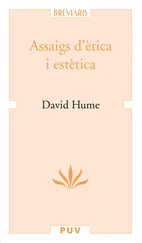The financial, like every other department of administration under the autocracy, differed in its leading features from that of the Principate. In raising the revenue the ideal aimed at was equalisation and uniformity; to treat the whole Empire alike, to abolish privileges and immunities. Italy, which had always been free from the burdens borne by the provinces, was largely deprived of this favoured position by the policy of Diocletian. 64The ideal was not entirely attained; some anomalies and differences survived; but on the whole, uniformity in taxation is the striking characteristic of the new system in contrast with the old. Another capital difference had been gradually brought about. The device of committing the collection of the revenue to middlemen, the publicans, who realised profits altogether disproportionate to their services, was superseded partly by the direct collection of the taxes by Imperial officials, partly through the agency of the local magistracies of the towns. Moreover, when we survey the sources of revenue at the end of the fourth century, we find that many of the old imposts of the Principate have disappeared, that new taxes have taken their place, and that the modes of assessment have been changed.
The most important and productive source of revenue was the tax on land and agricultural labour. This tax consisted of two distinct parts, the ground tax proper, which represented the old tributum imposed on conquered territories, and the annona . The tribute was paid only by those communities and in those districts which had always been liable; it was not extended to those which had been exempted under the Principate. It was paid in coin. The annona which was paid in kind was universal, and was a much heavier burden; no land was exempt; the Imperial estates and the domains of ecclesiastical communities had to pay it as well as the lands of private persons.
Originally the annona 65was an exceptional tax imposed on certain provinces in emergencies, especially to supply Rome with corn in case of a famine, or to feed the army in case of a war. The amount of this extraordinary burden, and its distribution among the communities which were affected by it, were fixed by a special order of the Emperor, known as an indiction. During the civil wars of the third century indictions became frequent. The scarcity of the precious metals and the depreciation of the coinage led to a change in the method of paying the soldiers. They no longer received their wages in coin. Money donations were bestowed on them from time to time, but their regular salary consisted in allowances of food. This practice was systematically organised by Diocletian. The supply of provisions,— consisting of corn, oil, wine, salt, pork, mutton — necessary to feed a soldier for a year, was calculated, and was called an annona. 66In the course of the fourth century the principle was extended and civil officials received salaries in kind.
This new method of paying the army was the chief consideration which determined the special character of Diocletian’s reform in taxation. He made the annona a regular instead of an extraordinary tax, and he imposed, as was perfectly fair, on all parts of the Empire. But he did not fix it at a permanent amount. It was still imposed by an indiction; only an indiction was declared every year. Thus it could be constantly modified and varied, according to the needs of the government or the circumstances of the provinces; and it was intended that it should be revised from time to time by a new land survey. 67
The valuation of the land was the basis of the new system. All the territory of the Empire was surveyed, and landed property was taxed not according to its mere acreage but with reference to its value in producing corn or wine or oil. Thus there was a unit ( iugum ) of arable land, and the number of acres in the unit might vary in different places according to the fertility of the soil; there were units for vineyards and for olives; and the tax was calculated on these units. 68The unit was supposed to represent the portion of land which one able-bodied peasant ( caput ) could cultivate and live on. Thus a property of a hundred iuga meant a property of a hundred labourers or capita , human heads. 69
Apart from Imperial estates, the greater part of the soil of the Empire belonged to large proprietors ( possessores ). In country districts they were generally of the senatorial class; in the neighbourhood of the towns they were probably more often simple curials, members of the local municipal senate. Their lands were parcelled out among tenants who paid a rent to the proprietor and defrayed the land tax. The tenants were known as coloni and, as we shall see later, were practically serfs. Their names and descriptions were entered in the public registers of the land tax, and hence they were called adscriptitii . 70As a rule, the proprietor would reserve some part of his estate as a domain for himself, to be cultivated by slaves, and for the tax on the iuga of this domain he would, of course, be directly liable.
Besides the large proprietors there were also small peasants who owned and cultivated their own land, and were distinguished from the serfs on the great estates by the name of plebeians. The tax which they paid was known as the capitatio plebeia . The meaning of this term has been much debated, but there seems little doubt that it is simply the land tax, assessed on the free peasant proprietors on the same principles as it was assessed on large estates. 71
The Imperial domains and the private estates of the Emperors, let on leases whether perpetual or temporary, and their cultivators, were liable to the universal annona or capitation, and it was the same with lands held by monastic communities. As to the amount of the land taxes we have hardly any information. 72
The ground-tax proper, or tribute, which was a trifle compared with the annona, seems to have been always paid in money, except in Africa and Egypt, which were the granaries of Rome and Constantinople. It was fixed on the basis of the same survey and was entered in the same book as the annona, but, as we have seen, it was not paid in the privileged territories which had always been exempt. As the currency gradually became established, after Constantine’s reforms, the annona too was under certain conditions commuted into a money-payment, and this practice gradually became more frequent. 73
In the town territories the body of the decurions or magistrates of the town were responsible for the total sum of the taxes to which the estates and farms of the district were liable. The general control of the taxation in each province was entirely in the hands of the provincial governor, but the collection was carried out by officials appointed by the decurions of each town. 74These collectors handed over their receipts to the compulsor , who represented the provincial governor, and he brought pressure to bear upon those who had not paid. 75
Heavy taxes fell upon all classes of the population when a new Emperor came to the throne and on each fifth anniversary of his accession. On these occasions it was the custom to distribute a donation to the army, and a large sum of gold and silver was required. 76The senators contributed an offertory ( aurum oblaticium ). 77The decurions of every town had to scrape together gold which was presented originally in the form of crowns ( aurum coronarium ). Finally a tax was imposed on all profits arising from trade, whether on a large or a petty scale. This burden, which was known as Five-yearly Contribution ( lustralis collatio ) or Chrysargyron (“Gold and Silver”) fell upon prostitutes as well as upon merchants and shopkeepers, and was felt as particularly oppressive. It is said that parents sometimes sold their children into slavery or devoted their daughters to infamy to enable them to pay it. 78
Читать дальше












